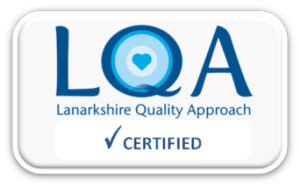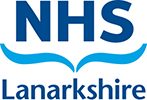Immediate Discharge Plan for Adults with Asthma
Information for patients
NHS Lanarkshire Emergency Department
PIL.IMMDIS.17_22751.L
Information – After Discharge
Follow the treatment plan below. If improving, breathing will be quieter, slower and easier, and you will be less wheezy and not coughing as much. You won’t need to use your reliever as much and the length of time between each use will increase. It may take a week or two for you to fully recover.
Treatment/Action
- Reliever: Take 2 puffs every 4 hours hours as required.
- Preventer: Take agreed dose.
- Steroid tablets: You should be advised on a dosage to take at your appointment.
- Make sure you see your GP or asthma nurse within 48 hours and get an asthma action plan.
Information – Not improving
Your asthma is getting worse if you:
- Have difficulty sleeping because of cough, wheeze, chest tightness or breathlessness.
- Have difficulty doing normal activities because of asthma symptoms.
- Are using your reliever inhaler more or it lasts a shorter time.
Treatment/Action
- Reliever: Take 2 puffs as often as needed.
- Preventer: Take agreed dose.
- Steroid tablets: You should be advised on a dosage to take at your appointment.
- Make an urgent appointment to see your GP or asthma nurse.
Information – Worsening symptoms & asthma attack
In an Asthma attack you may find:
- Your reliever inhaler is not helping
- It is difficult to walk or talk
- It is difficult to breathe
- You are wheezing a lot or have a very tight chest
- You are coughing a lot.
This is an Emergency! Follow the treatment below
Treatment/Action
- Sit up straight and remain calm.
- Take 1 puff of reliever inhaler every 60 seconds up to 10 times.
- If you feel worse at any point or if there is no improvement, call 999 and repeat the above step every 15 minutes whilst waiting on an ambulance.
- If you feel better after the first 10 puffs and symptoms have improved, make a same day appointment with your GP or asthma nurse.
How do I stop this happening again and what do I do if it does?
Avoid triggers
Triggers are anything that cause asthma symptoms to worsen. The following are common triggers.
- Allergies: grass and tree pollen, certain animals, some foods and mould spores
- Infections such as the common cold and flu
- Certain medications, e.g. ibuprofen
- Irritants: tobacco smoke, chemical fumes, strong odours and air pollution.
Make Lifestyle Changes
- Smoking: Smoking worsens asthma control and reduces the effectiveness of your inhalers. It is highly recommended that you stop
- Exercise: Asthma should not stop you exercising and you should take part if your asthma is under control. If you are breathless with exercise, take your inhaler 15 minutes beforehand
- Diet: Maintaining a healthy diet and weight can help in managing asthma
- Immunisation: Those with chronic conditions such as asthma are encouraged to have the annual flu vaccine. Please ask your GP for more details.
Have an Asthma Action Plan
You should discuss with and agree on a written ‘Asthma Action Plan’ with your GP or asthma nurse. This may include the following:
- What your regular medication is and how often you should be using it
- Signs that indicate your asthma is worsening and how to alter you medication
- Advice on when to seek further help including when to call 999
- Contact details for your GP/Asthma nurse
- Your best peak flow. It is useful and important that you know what your best peak flow is and that you check this whenever you feel your symptoms are worsening!
Look out for early warning signs
You might see these a day or two before the asthma flares up. By acting quickly at home, you might stop things getting worse. Early warning signs include things like:
- An increase in symptoms, such as breathlessness, wheeze, cough, and chest tightness
- Difficulty sleeping because of asthma
- Using blue (reliever) inhaler more often
- Common cold symptoms
- Reduced peak flow.
Treat the early warning signs quickly
As soon as you see warning signs, or a cold or virus starts, take 2 puffs of the blue reliever inhaler every four hours. By acting quickly you prevent your symptoms worsening and avoid going to hospital.
If your symptoms continue for two days, consult your GP or asthma nurse, or, out of hours, contact NHS 24.
Useful contacts – Asthma UK
Patient-friendly website including: Asthma action plans
Chest, Heart and Stroke Scotland website: My Lungs My Life
Emergency Department Contact Information
- University Hospital Hairmyres: 01355 584716
- University Hospital Monklands: 01236 712191
- University Hospital Wishaw: 01698 366630
- NHS 24: 111

Publication date: February 2022
Review date: February 2024
Issue Number: 03
Clinical Lead: H MacColl
Reference: PIL.IMMDIS.17_22751.L
22_07044
If you need this information in another language or format, please e-mail:





